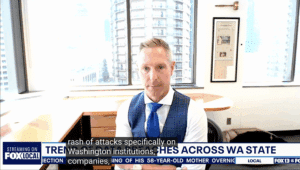The past few years have brought an alarming number of studies and reports on the short-term effects of concussions on youth who play sports, as well as possible long-term repercussions for professional athletes who play high-impact contact sports like football and hockey. All of these belong to a demographic of professional and amateur athletes who are at risk of multiple concussions and “subconcussive” injuries.
Yet until recently, much less was known about the long-term consequences of sustaining a concussion or head injury years ago by recreational athletes. For example, does a 50-year-old male who played high school football in the ’70s, and maybe “had his bell rung” after a tackle or became dizzy from a hit also need to worry about his brain today, even if he never had a concussion formally diagnosed? Or does someone need to worry about who bounced their head against the slopes while learning to snowboard 10 years ago?
Recent research suggests that the emerging consensus is a cautious “probably not,” although those with concerns may still have good reason to keep an eye on how easily they forget names or places. For example, a study recently published in the journal Cerebral Cortex evaluated the brains and cognitive function of a group of middle-aged former athletes who’d played contact sports in college nearly 30 years ago; some from that group had suffered concussions as young athletes.
In the intervening years, the athletes had remained in shape but left competitive sports. No one reported failing memories or other symptoms of cognitive disability (or at least, not at any higher rates than any other group of 50- and 60-year-olds).
The researchers also performed MRI scans of the volunteers’ brains to precisely determine the contours, volume, and other structural components of patients’ brains. In addition, volunteers were asked to complete tests of long- and short-term memory, including their capacity to summon up specific words (a task that many middle-aged adults find increasingly difficult).
Head Injury Claims
When scientists carefully examined data from the former athletes, they did find small disparities between the brains of those with past concussions and those who had never suffered a head injury. Many patients who’d been hit in the head decades ago now had somewhere less volume in the hippocampus, a region of the brain linked to memory and learning. A significant number also showed slightly thinner cortexes, especially in parts of the brain that are generally thin as we age. And finally, many had a slightly lower ability to recall events and think up words and names than their never-hit-in-the-head counterparts.
Slight as those differences were, they were nonetheless reminiscent of “abnormal aging.” In sum, researchers concluded that individuals with concussions from many decades ago seemed biologically older than the with uninjured brains. A 50-year-old who’d experienced a knock on the head had a brain that appeared structurally and metabolically similar to an uninjured 60-year-old.
Dr. Broglio, who has extensively studied concussions in college students, wrote a review in July that was published in Exercise and Sport Sciences Reviews, which examines the correlation between sports-related concussions and premature brain aging. His data show a slight decline in college students’ ability to concentrate and retain information and a small impairment in balance and bodily control years after a concussion. Those changes, as he points out, resemble changes in the bodies and brains of elderly people.
His conclusion that that “It seems possible, according to our data and that from other labs, [those concussions] may accelerate some of the normal deterioration in cognitive and motor function that we’d expect with aging.”
However, specific effects will likely vary significantly from person to person. “We know right now that some athletes are more affected by a single concussion than others,” says Kevin M. Guskiewicz, chairman of exercise and sports science at the University of North Carolina at Chapel Hill, and winner of a MacArthur “genius grant” last year for his work studying sports-related concussions. “And we don’t know why.”
When To Call A Seattle L&I Attorney
If you have sustained an injury at work or occupational illness, the workers’ compensation lawyers at Emery | Reddy can represent your case throughout the L&I claim process, and ensure that you receive all the medical and financial benefits you deserve under Washington law. Many workers also turn to us for experienced legal representation after they receive a denied L&I claim or are ordered to schedule an Independent Medical Examination. Call our legal team today for a free review.






